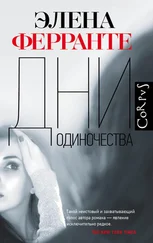“Why not?” I asked.
“Because it’s pointless to make a drama out of it, it’s just a small setback. You’ll repeat a year, you’ll study and become the best in the class. Agreed?”
“Yes,” I answered unwillingly and was about to go to my room, but she held me back.
“Wait, remember not to say anything, even to Angela and Ida.”
“Were they promoted?”
“Yes.”
“Did Papa ask you not to tell them?”
She didn’t answer, she bent over her work, she looked even thinner to me. I understood that they were ashamed of my failure, maybe it was the only feeling they still had in common.
3.
There were no vacations that summer, my mother didn’t take one, I don’t know about my father, we didn’t see him until the following year, in late winter, when she summoned him to ask him to make their separation legal. But that didn’t bother me, I spent the entire summer pretending not to notice that my mother was in despair. I remained indifferent even as she and my father began to discuss dividing their things and quarreled furiously when he started in with: Nella, I urgently need the notes that are in the first drawer of the desk, and my mother yelled that she would prevent him—forever, in any way—from taking from the house a single book, a notebook, even just the pen he usually used and the typewriter. Whereas I was hurt, humiliated by that order: don’t tell anyone you weren’t promoted. For the first time my parents seemed petty, just as Vittoria had painted them, and so I avoided, any way I could, talking to Angela and Ida or seeing them: I was afraid they would ask how I’d done in school or, I don’t know, how things were going in my second year of high school, when in reality I was repeating the first. I liked lying more and more, I felt now that praying and telling lies provided the same consolation. But having to resort to fabrication to keep my parents from being shamed, and to cover up the fact that I hadn’t inherited their abilities, wounded me, depressed me.
One time when Ida called I made my mother say I wasn’t there, even though in that phase of a lot of reading and even more movies I would have been happier to talk to her than to Angela. I preferred absolute isolation: if it had been possible, I wouldn’t have spoken even to my mother. At school now, I dressed and made myself up to look like a dissolute woman among respectable kids, and I kept everyone at a distance, even the teachers, who tolerated my sullen behavior only because my mother had found a way of letting them know that she, too, was a teacher. At home, when she wasn’t there, I played loud music and sometimes danced furiously. The neighbors frequently came to protest, but when they rang I didn’t open the door.
One afternoon when I was alone and letting loose, the doorbell rang. I looked through the peephole, sure that it was angry neighbors, and saw Corrado on the landing. I decided not to open the door even then, but I realized that he must have heard my footsteps in the hall. He stared into the eye of the peephole with his usual boldness, maybe he even heard my breath on the other side of the door, and his serious expression turned into a broad, reassuring smile. I remembered the photograph of his father I had seen at the cemetery, the one in which Vittoria’s lover was laughing with satisfaction, and I thought that they shouldn’t put pictures of the dead laughing in cemeteries, luckily Corrado’s smile was on a living person. I let him in mainly because my parents had always ordered me not to let anyone in in their absence, and I didn’t regret it. He stayed for an hour, and for the first time since that long crisis began a lightheartedness came over me that I’d thought was no longer possible.
When I met Margherita’s children, I had appreciated Tonino’s self-possession, the beautiful Giuliana’s lively responses, but Corrado’s somewhat spiteful talk annoyed me, the way he ridiculed everyone, even Aunt Vittoria, with cracks that weren’t funny. That afternoon, instead, no matter what came out of his mouth—in general unquestionably stupid—I bent over laughing, with tears in my eyes. It was something new that later became a characteristic of mine: I begin with a laugh made out of nothing and then I can’t stop, laughter turns into giggles. That afternoon the culmination was the word “dimwit.” I had never heard the word and when he said it I thought it was funny and burst out laughing. Corrado realized it and with his Italianized dialect began saying it continuously—that dimwit , this dimwit —to denigrate sometimes his brother Tonino, sometimes his sister Giuliana, while my laughter satisfied and incited him. Tonino, in his view, was a dimwit because he was going out with my friend Angela who was even more of a dimwit . He asked his brother: have you kissed her? Sometimes. And do you feel her up? No, because I respect her. You respect her? So you’re a dimwit , only a dimwit gets a girlfriend and then respects her, why the fuck do you have a girlfriend if you’re gonna respect her? You’ll see, if Angela’s not a dimmer dimwit than you, she’ll say: Tonì, please, don’t respect me anymore or I’ll leave you. Ha ha ha.
I had so much fun that afternoon. I liked the casual way Corrado talked about sex, I liked the way he mocked the relationship between his brother and Angela. He seemed to know a lot, through direct experience, of what goes on between boyfriend and girlfriend, and every so often he’d mention the dialect word for some sexual practice and in dialect explain to me what it meant. Even if I didn’t understand very well because I hadn’t really mastered that vocabulary, I let out prudent, constricted little laughs, to then laugh wholeheartedly only when, one way or other, he went back to saying dimwit again.
He was incapable of distinguishing between serious and facetious, everything about sex seemed comic to him. I understood that for him kissing was funny but also not kissing, touching but also not touching. Funniest of all, according to him, were his sister Giuliana and Roberto, Tonino’s very intelligent friend. Those two, who had loved each other since they were little without telling each other, had finally got engaged. Giuliana was madly in love with Roberto, for her he was the handsomest, most intelligent, most courageous, most just, and furthermore he believed in God much more than Jesus Christ did, even though Jesus was God’s son. All the sanctimonious types of Pascone not to mention the ones in Milan, the city where Roberto had studied, were of the same opinion as Giuliana, but, Corrado told me, there were also many other people with a head on their shoulders who didn’t share all that enthusiasm. Among those, he and his friends had to be included, for example Rosario, the guy with the buck teeth.
“Maybe you’re all wrong, maybe Giuliana’s right,” I said.
He took a serious tone, but I immediately realized it was fake.
“You don’t know Roberto, but you know Giuliana, you were at the parish church and you saw the dances they do, Vittoria playing the accordion, the sort of people who are there. So you tell me: do you trust what they think or what I think?”
I was already laughing, I said:
“What you think.”
“And so in your opinion, objectively, what is Roberto?”
“A dimwit,” I almost shouted, and laughed uncontrollably, by now the muscles of my face hurt from laughing.
The more we talked that way, the more intense became a pleasant sense of breaking the rules. I had let into the empty house that kid who had to be at least six or seven years older than me, I had agreed to joke around with him, for almost an hour, about sexual things. Gradually, I felt ready for every other possible transgression, and he guessed it, his eyes sparkled, he said: you want to see something. I shook my head no, but laughing, and Corrado laughed, too, pulled down his zipper, murmured, give me your hand and I’ll let you touch it. But since I was laughing and didn’t give him my hand, he took it, politely. Squeeze, he said, no, that’s too hard, good, like that, you’ve never touched the dimwit, right. He said it just to make me giggle again, and I laughed, I whispered, That’s enough, my mother might come back, and he replied: We’ll let her touch it, too, the dimwit. Oh how we laughed, it seemed to me so ridiculous to hold that thick, rigid thingy in my hand, I pulled it out myself, I thought, he hasn’t even kissed me. I thought it while he said to me: put it in your mouth, and I would even have done that, just then I would have done anything he asked me merely to laugh, but from his pants came a strong toilet odor that disgusted me, and at the same time he said suddenly, that’s enough, took it out of my hand, and stuck it back in his underpants, with a hoarse groan that unnerved me. I saw him sink back against the chair for a few seconds, eyes closed, then he shook himself, pulled up his zipper, jumped to his feet, looked at the clock, and said:
Читать дальше

![Элена Ферранте - История о пропавшем ребенке [litres]](/books/32091/elena-ferrante-istoriya-o-propavshem-rebenke-litres-thumb.webp)
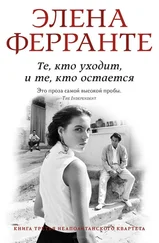
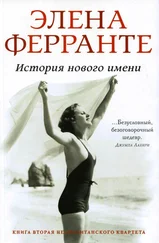
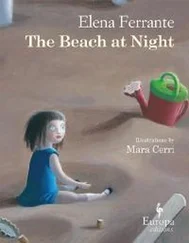
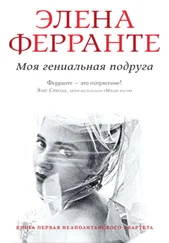
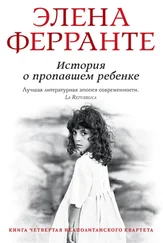
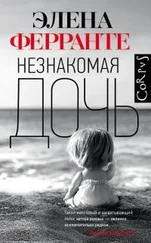
![Элена Ферранте - Дни одиночества [litres]](/books/404671/elena-ferrante-dni-odinochestva-litres-thumb.webp)


